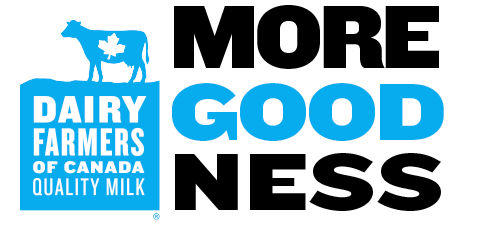Highlights
- Canadian dairy sector
- Nutritional advice
Cindy is currently supporting the national nutrition team with the planning, development, and execution of national programs in the area of health professionals. She is one of the leading voices among a team of strong, resilient, and knowledgeable dietitians who are passionate about all things dairy.
To further understand her contributions within our dairy organization over the past twenty-five years, we sat down with her to discuss her work experience and to obtain some wise nutritional advice about dairy.
Why did you decide to become a dietitian?
Often our childhood experiences influence the rest of our lives. In my case, my mother prioritized health. She did this through the meals she prepared. There was a lot of dairy consumed in our household, milk, various cheeses, yogurt, and ice cream. My family ate breakfast and dinner together. We were active in our church, involved in our local community and held strong ties to our Icelandic heritage through the city’s Scandinavian Centre. The cultural practices and healthy eating habits instilled by my members of my community are what inspired me to pursue a career in the field of nutrition.
Why did you choose to pursue a career with Dairy Farmers of Canada and Alberta Milk?
As a university student, I got a taste of the dairy industry when I had a summer position with the Milk Foundation of Edmonton. In addition, my Master’s degree focused on the importance of nutrition and exercise in building bone mass in women. Naturally, working in the dairy industry was the perfect fit understanding that dairy products were an important part of a healthy active lifestyle.
How does your department advocate for the interests of dairy farmers?
Our dietitians are true ambassadors for the dairy industry. They share much more than just nutrition, they correct misinformation about various farming practices (e.g., antibiotic usage) and talk about sustainability and how dairy farmers are contributing to solutions (i.e., reducing emissions through efficiencies).
What do you wish consumers and farmers were more informed about when it comes to the work that you accomplish at DFC?
Whether it is a teacher engaging with students in a classroom, a fitness leader responding to a class participant or even a dietitian addressing a patient’s question, our work is to ensure that they have positive, accurate, evidence-based messages about nutrition, dairy products, and the Canadian dairy sector. At the end of the day, our priority is to deliver high calibre programs and resources on behalf of our dairy farmers.
What challenges have you experienced during your tenure at DFC and how have you overcome them?
Myths and misconceptions about the Canadian dairy sector extend far beyond the activities and processes that take place on the farm. Some consumers are questioning the nutritional benefits of dairy products. Yet, some of these same individuals do not know the origin of the agricultural products found in their grocery stores and believe incorrect information about the nutritional value of the food they consume.
Maintaining an evidence-based approach along the years has helped me, overcome several challenges but it has also been the only way to win over the trust of consumers for the benefit of Canadian dairy farmers.
What do you find most rewarding about working for the Dairy Farmers of Canada?
Significant changes have happened to DFC over the past eleven months, and I have appreciated being part of the dedicated and talented leadership team that advocates for Canadian dairy farmers and their families. It's rewarding to know that I am working in such an exciting and innovative industry. In these past twenty-five years, there has definitely never been a dull moment in the Canadian dairy sector.





